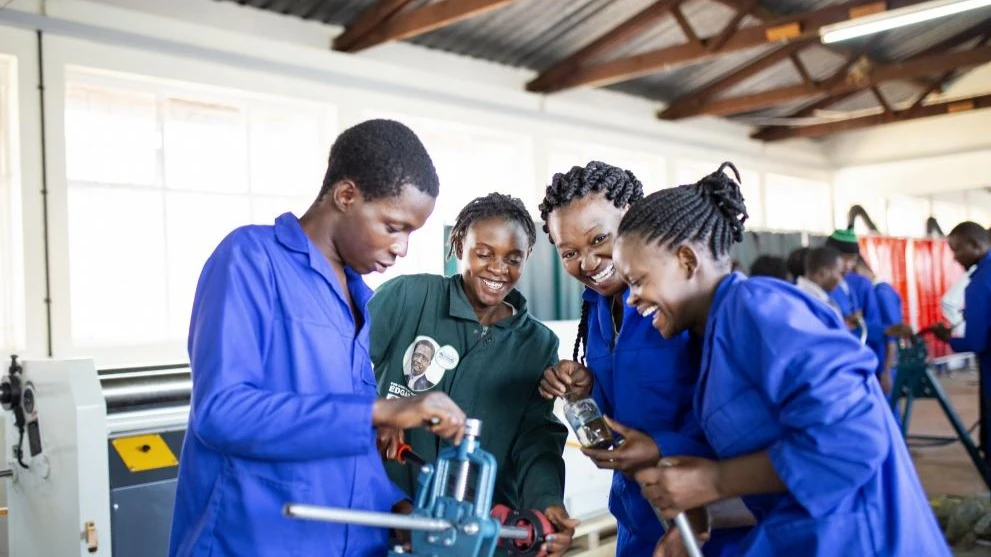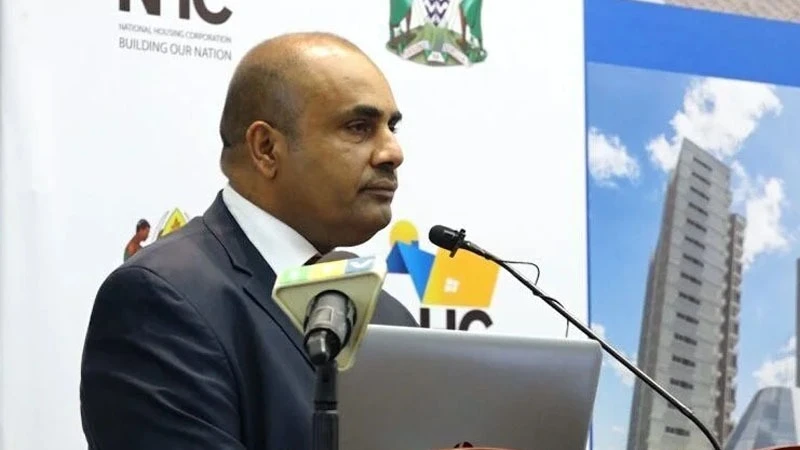Vocational education overhaul: Breaking barriers for further academic advancement

VOCATIONAL education in Tanzania has long been stigmatized as a fallback for those deemed academically unfit for secondary school. This damaging perception has erected countless barriers for aspiring students, leaving the vocational path shrouded in uncertainty and obstructing opportunities for further educational advancement.
For instance, it was difficult for someone who completed vocational education to proceed to a degree program because there were not enough transition programs available. Those who attempted to switch to other educational pathways faced numerous obstacles, making it seem nearly impossible to pursue a degree through the vocational route.
In some higher learning institutions, a few slots were reserved for those who went through vocational education, but many entered as 'mature students,' even if they were the same age as their peers. Furthermore, there were limited courses they were allowed to pursue.
These barriers led to a societal disdain for vocational education, and many avoided it if they could because there were no clear avenues for advancing to higher education. Vocational education became stigmatized, and seen as a route for those who failed to get into secondary schools and regular colleges.
Recognizing these shortcomings, the government decided to change policies and laws to make vocational education respected on par with secondary education. Consequently, laws were enacted, and the National Council for Technical Education (NACTE) was established to oversee this education sector.
However, this council is still not widely recognized, and many confuse it with the National Examinations Council (NECTA). Additionally, the educational standards recognized by NACTE are not as fully accepted in the public service system as those from NECTA are.
In efforts to strengthen the job sector, the government, in collaboration with various organizations, launched projects to improve vocational education. A recent example is the second phase of the Skills for Development Tanzania (SET) project, worth 24 billion Tanzanian Shillings. This project aims to enhance job opportunities for youth and teachers in Focal Development Schools (FDS).
This project, which started in 2022 and is expected to end in 2026, is implemented by the Swiss government through its agency, Swisscontact. Paul Medeye, a youth training expert from Swisscontact, said the project involves assessing skill needs, sustainable professional development, and youth training.
The project aims to improve the development of vocational skills for young people aged 15 to 24, including young mothers in the regions of Morogoro, Iringa, and Mbeya. According to Medeye, they decided to continue the project to its second phase after the success of SET I, which benefited over 10,000 youths by providing them with sustainable training in agriculture, poultry farming, and other related areas.
Former Deputy Minister of Education, Science, and Technology, Omary Kipanga, said this project helped the government improve skill development to create job opportunities for the youth, who make up about 70% of Tanzania's population. While the government puts a lot of emphasis on primary and secondary schools, the situation is dire in vocational colleges.
The Ministry of Education, which oversees NACTE, focuses more on Vocational Education and Training Authority (VETA) colleges, while FTC colleges have been left behind. These FTCs, which previously taught tailoring, auto mechanics, and community development, no longer reflect the advancements in science and technology. These colleges lack modern equipment, and their infrastructure is dilapidated.
Colleges like those in Monduli District, Uyole, Mbeya Region, and many others have been neglected for a long time without strategies for improvement. According to the new government plan, even teacher colleges will no longer offer diplomas but only advanced diplomas, requiring students to stay in college for three years instead of the previous two.
The situation in FTC colleges has deteriorated due to budget constraints and lack of prioritization. Students pay 600,000 Tanzanian Shillings per year, but these funds are not fully utilized to cover the internal budgets of the respective institutions. The government has a system where student fees go directly to the relevant ministry, causing college administrations to rely on grants to run their institutions.
College owners wish the government would give them full authority to collect and use contributions to develop their institutions. They say many requests are not acted upon or processed in time, affecting efficiency in teaching and operations.
Despite past allegations of corruption during the Education for Self-Reliance (EK) initiative, colleges had self-sustaining projects that served the surrounding communities. Graduates could demonstrate productivity in the job market due to Mwalimu Nyerere's philosophy of self-reliance education, which involved students in producing goods and services.
However, the current generation is not keen on participating in agricultural activities using outdated technologies. They need modern training, such as auto mechanics, computer skills, driving, and hotel services. This means that the government and education stakeholders must invest in modern equipment and technology to provide students with skills that meet the demands of the current job market.
Overall, the government should strengthen plans to improve vocational education by providing adequate resources and ensuring that FTC colleges get the necessary equipment and infrastructure. This will enable students to receive quality education and acquire skills needed in the job market, ultimately improving the country's economy and the lives of its citizens.
It is also important for education stakeholders to collaborate with the private sector and international organizations to bring about real changes in vocational education. This collaboration can help bring new technologies and increase investment in vocational colleges, thus improving the quality of training offered.
As well, the government must ensure that the educational standards provided by vocational colleges are fully recognized in the job market. This will enable vocational graduates to get better jobs and advance academically. The education system should also consider the needs of the job market and incorporate more practical training to prepare graduates for real-world work environments.
In the current digital economy, it is also crucial to invest in information and communication technology (ICT) training. Vocational colleges should introduce ICT training programs and ensure that students acquire modern skills needed in the job market.
Still, the government should provide incentives for students and teachers in vocational colleges to boost the enthusiasm for learning and teaching. These incentives can include offering educational loans, improving working conditions for teachers, and rewarding students who perform well.
Vocational education is essential for national development and community well-being. It is the responsibility of the government, education stakeholders, and society to ensure that vocational education gets the priority it deserves and is empowered to grow and improve. By doing so, we will have laid a solid foundation for economic and social development for future generations.
Developed countries have heavily invested in vocational education and have reaped the benefits of such investments. For instance, Germany has built a robust vocational training system (the Dual System) where students receive classroom education and practical training in various companies. This system has enabled students to gain real skills needed in the job market and significantly contributed to Germany's economic strength. Tanzania can learn from Germany by establishing partnership programs between vocational colleges and the private sector to provide combined practical and theoretical training.
In Switzerland, vocational education is also highly valued. Many students choose the vocational path and receive high-quality training, providing them with numerous job opportunities. The Swiss vocational education system is renowned for its quality and has contributed to the country's low unemployment rate. Tanzania can learn from Switzerland by ensuring vocational colleges have modern equipment and well-trained teachers to offer quality education to students.
In Finland, vocational education is taken very seriously, and the government invests heavily in ensuring students receive a quality education. Vocational colleges have modern equipment, and students receive practical training that prepares them well for the job market. Tanzania can learn from Finland by ensuring vocational colleges have the necessary equipment and conducive learning environments.
In the UK, the government has put a significant emphasis on vocational education. The government has introduced vocational training programs in collaboration with various companies to provide practical training for students. These programs have increased job opportunities for young people and reduced the unemployment rate. Tanzania can learn from the UK by establishing partnership programs between vocational colleges and the private sector to increase job opportunities for young people.
On a lighter note, developed countries offer many examples to emulate in advancing vocational education. Tanzania can learn from these countries by ensuring that vocational education receives the priority it deserves and is empowered to grow and improve. This includes ensuring that vocational colleges have modern equipment, well-trained teachers, and conducive learning environments. It is also essential to establish partnership programs between vocational colleges and the private sector to provide practical training for students.
By doing so, Tanzania will have laid a solid foundation for economic and social development for future generations. Vocational education will help reduce unemployment, increase workers' skills, and contribute to the nation's economic growth. It is now time for the government, education stakeholders, and society to invest fully in vocational education to ensure that young people acquire the necessary skills in the job market and contribute effectively to the nation's development.
Top Headlines
© 2024 IPPMEDIA.COM. ALL RIGHTS RESERVED

























